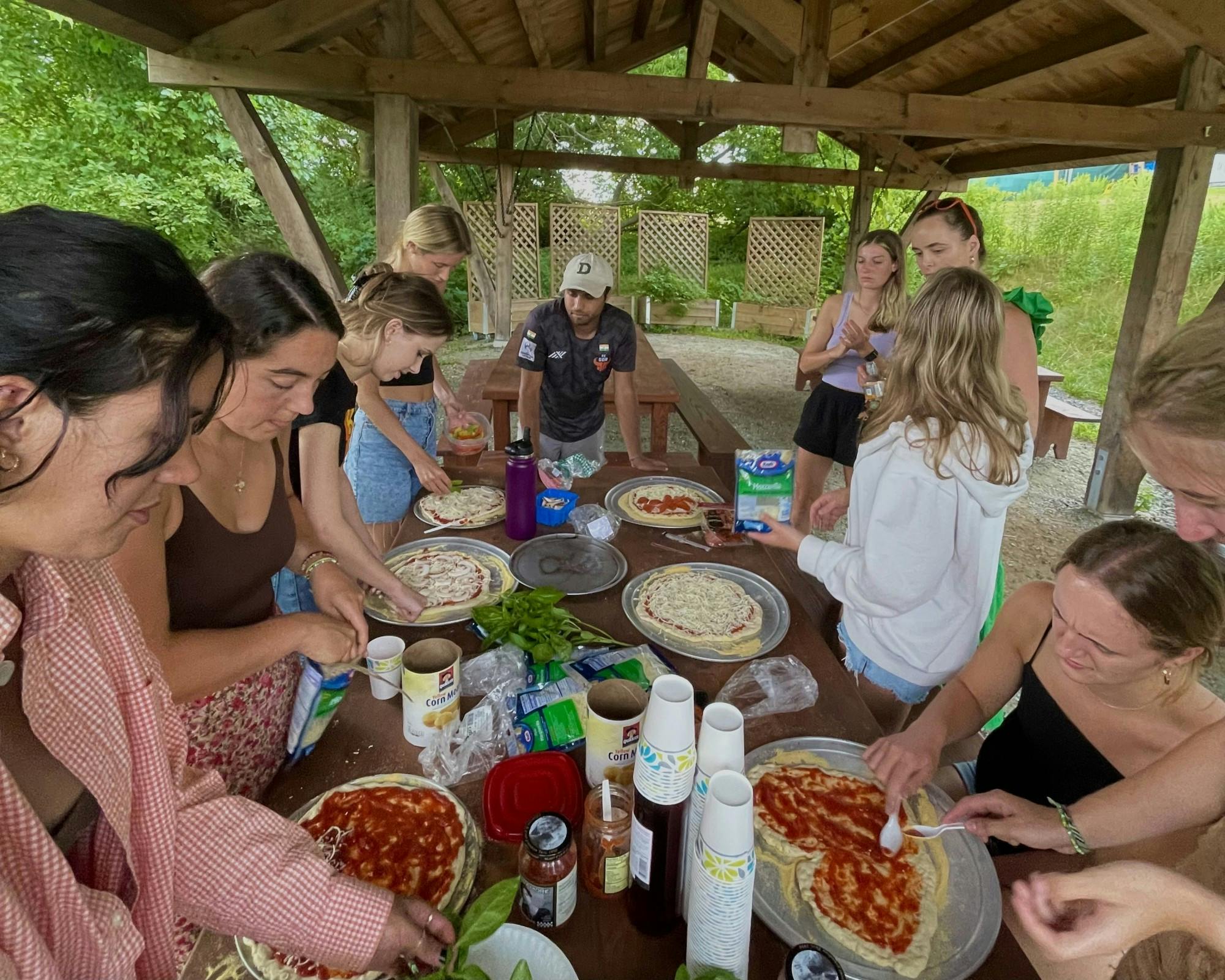This article is featured in the 2022 Freshman special issue.
Located three miles north of campus on the Connecticut River, the Dartmouth Organic Farm offers a getaway from the fast-paced nature of the College. It is also a hub for hands-on learning and home to an educational working garden, student research and independent projects, according to its website.
Organic Farm assistant director Laura Braasch said that the O-Farm represents a “central” component of Dartmouth because of the different people it brings together.
“The Dartmouth Organic Farm is such an amazing site for farming and connection because of how central the landscape is: It is used by so many different groups of people, including undergraduates, professors and graduate students,” Braasch said. “This allows people across all corners of campus to mix, which builds a unique community.”
Each year, the O-Farm grows over 4,000 pounds of organic produce, with over 60 varieties of vegetables, grains and flowers, according to the O-Farm website. It grows several types of organic vegetables – many of which are donated to the non-profit food recovery organization Willing Hands – as well as produce for Moosilauke Ravine Lodge dinners and pizza dinners hosted at the O-Farm. In addition, the O-Farm is part of a conservation easement that sustains agricultural activity and maintains public access to walking trails.
There are many ways for students to get involved with the O-Farm, such as the Organic Farm Club, which organizes educational, social and volunteer events at the farm, according to Braasch. The club is a subclub of the Dartmouth Outing Club that allows students to give back to the local community and better understand issues surrounding food systems, she said.
Laurel Pitts ’24 said she joined the farm club her freshman year. She added that she participates in the club year-round and drives to the O-Farm twice a week for work days, when she typically spends two hours working with a group that weeds, plants and tends to the vegetable gardens.
Although Pitts said she loved gardening in high school, she did not have any prior experience with farming before college but is interested in sustainable agriculture.
“We spend a lot of time focused on ourselves, and going to the farm enables acts of care for other things,” Pitts said. “Investing in the success of something else like a seedling, or soil or an entire row of crops – anything non-human – is refreshing.”
Pitts said that the barn at the O-Farm has wifi and is a nice place for students to hang out. She highlighted that the Class of 2026 will have the opportunity to attend special pizza dinners and Harfest, the farm’s annual harvest festival featuring fresh produce and live music, which is open to all students.
Students and professors can also utilize the O-Farm as a space for academic research and projects. Maya Nguyen ’24 said she is currently enrolled in ENVS 25: “Agroecology,” which meets at the O-Farm every Thursday for four hours.
Nguyen said she felt inspired to take the class because upperclassmen recommended it to her, and that it has allowed her to gain hands-on practical experience as an environmental studies major. She said she had never had any previous experience with farm work until taking the course.
“I really wish there were more classes like Agroecology – it’s both fun and interesting, and [it] is a unique experience to Dartmouth,” she said. “I’ve learned so much about what goes into growing food to create a healthy ecosystem, and how to use different species to produce healthier crops.”
Lily Ding ’24 is also in ENVS 25: “Agroecology” and said that the class does different field projects every week, using lab sessions at the farm to collect data. Examples of their research include studying the effects of white clover crops on eggplant and comparing the spread of weeds on a sapling plot, Ding said.
Ding added that the class has shown her how a farm operates.
“I am interested in sustainable agriculture, and agroecology plays a big part in that,” Ding said. “This class, and the farm, have shown me how agricultural systems can fit within natural ecosystems. I had a very different perception of what a farm was before I took this class.”
The O-Farm is also home to two beehives supported by members of the Dartmouth Beekeeping Association, according to the O-Farm website. Other traditions include students making maple syrup from the sugar maple trees near the O-Farm. Farmers at the O-Farm also grow flowers, which they occasionally provide to the Collis Student Center for students to build their own bouquets.
Jack Walker ’22, a program assistant at the farm, said that the O-Farm has three beehives, which the farm often uses for educational purposes. He added that students can get involved in beekeeping through the farm club, and work on the hives begins in March.
“We had two hives over winter this year and we just bought a new hive,” Walker said. “We check on the bees once every two weeks, and honey harvest [happens] mainly in the spring and late fall.”
According to Walker, there will be different types of agricultural workshops such as mushroom harvesting and pickling this upcoming fall. Braasch added she hopes the Class of 2026 will think of the farm as a resource.
“I want to hear about cool ideas [students] have, and everyone at the farm wants to engage with students,” she said. “We are here to help turn your ideas into realities.”
Walker also emphasized the importance of student engagement at the farm.
“Every project that has occurred at the O-Farm has evolved from an undergraduate student’s idea,” he said. “The farm is here for students to utilize it.”




